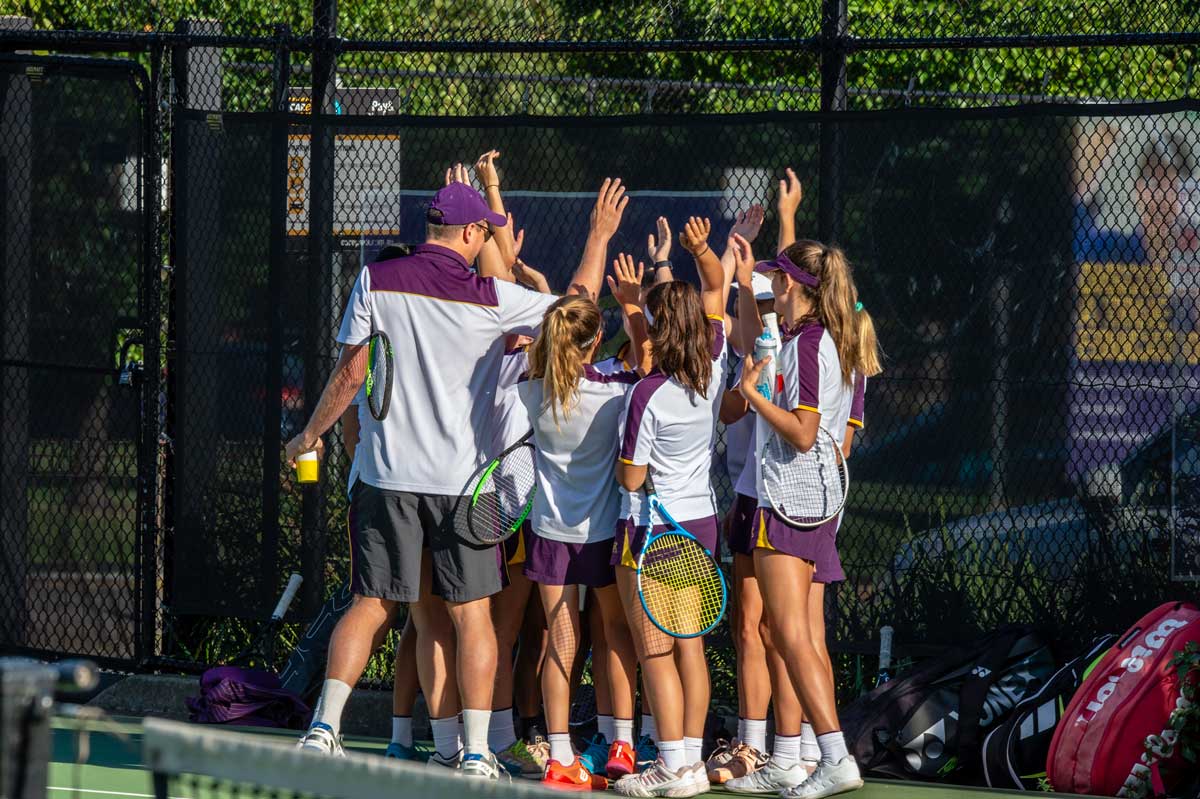
Sport at Wesley provides a sense of engagement and belonging. It connects staff and students away from the classroom and for many, it provides a sense of purpose and identity among their peers.
From a student health and wellbeing perspective, sport is incredibly important. The evidence is very clear about the links between physical activity and improved levels of wellbeing, connectedness, cognitive capability and establishing healthy habits.
There are many opportunities for students to be actively engaged in sport and physical activity at Wesley. Physical and health education is a compulsory subject from Prep to Year 10 and focuses on linking physical activity and nutrition to mental health and wellbeing. Students master a range of fundamental movement skills like balancing, sprinting, jumping, catching and throwing while building confidence and a positive attitude towards physical activity.
From Years 5 to 12, all students are involved in compulsory cocurricular sport through the Associated Public Schools (APS) sports training and competition. Students choose from an extensive range of 21 sports available across three seasons with all levels and abilities catered for. Sport offerings have grown over time with more opportunities for girls including Girls Cricket and AFL.
The cocurricular sports program is supported by highly-skilled staff with dedicated sport managers at each campus and twenty Head Coaches led by a College Head of Sport. Many of our Head Coaches have competed at a professional or semi-professional level. During weekly training sessions, our specialist coaches guide students to hone their skills, master tactics and understand the strategy of their chosen sport.
Last year, we began embedding Wesley’s Learning and Wellbeing framework, ROAR into Sport.
The acronym ROAR captures the four tenets at the heart of learning and wellbeing at Wesley: Respect, Opportunity, Achievement and Resilience and recognises that wellbeing and learning are inextricably linked and mutually reinforcing.
Leading sport and organisational psychologist, Michael Griffiths, has joined the Wesley team to help develop and implement the ROAR framework into sport and has worked with coaches and students to introduce a suite of sport psychology tools to improve both individual and team performances. One such tool provides a means to evaluate and reflect on team performance using four important dimensions: game strategy, skills executed, team culture and team morale.
This approach ensures that both the individual and group perspective is understood which leads to improved communication and understanding and in turn, enhanced performance.
The 2022 APS summer season of sport was one of Wesley’s most successful in recent memory at a Firsts’ level, with an impressive three premierships including Girls Tennis, Boys Tennis and Girls Volleyball. Our First VIII Girls Rowing Crew also won the ‘Head of the River’ Regatta for the second year in a row, a fabulous achievement given the constraints of the last two years.
It is wonderful to see our students compete with great verve and spirit once again while enjoying the social, educational and emotional benefits that sport brings.
